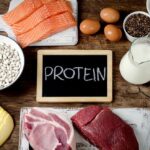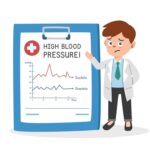If you are a vegan athlete, then it is likely that you prioritize your recovery and nutrition. It is also likely that you constantly get asked questions like, “If you are vegan, then where do you get your protein?” or “How do you get enough vitamin B if you are on a vegan diet?”
The answers to these questions tend to revolve around proper supplementation and ensuring you check all of the nutritional boxes as a plant-based athlete. But depending on your sport or physical activity, your nutritional demands may be much higher than others who simply go to the gym from time to time.
For instance, if you are a triathlete, ultra-distance cyclist, marathoner, or bodybuilder, your nutritional needs will require a much higher concentration of vitamins, minerals, amino acids, and other important nutrients. To help you determine what those needs are, below we discuss five of the most important plant-based nutritional supplements for vegan athletes.
Vitamin B12
Vitamin B12 deficiency is one of the most common nutritional problems vegans face. Low B12 can cause anemia and nervous system damage when highly deficient. Beyond animal-based sources, the only reliable vegan sources of vitamin B12 are supplements and foods fortified with B12 (including some cereals, bars, plant milk, etc.)
While most vegans consume enough vitamin B12 to avoid serious health issues like anemia and nervous system damage, athletes need to be particularly conscious about consuming enough B12. In addition to eating B12 fortified foods, the Vegan Society recommends taking a minimum of 10 micrograms of B12 supplement daily or at least 2000 micrograms of B12 supplement weekly. Athletes may want to get more.
Sport Protein Powder
One of the most difficult nutritional hurdles in consuming a vegan diet is consuming adequate amounts of high-quality protein. Plant foods generally offer less protein-rich macronutrients compared to animals and dairy.
For most plant-based athletes, supplementing with a sport-specific vegan protein powder is a crucial addition to one’s diet. What makes a protein powder sport-specific is its ingredients (usually a combination of nutrient-dense protein sources and recovery-enhancing foods) as well as its amino acid profile, such as how many branched-chain amino acids (BCAAs) it’s packing. Because BCAAs are important for proper recovery, it’s good to look for some of the best plant-based protein powder that contains a high concentration of those amino acids.
Unfortunately, there aren’t a ton of options when it comes to vegan protein powders with sport-specific qualities. Of the few choices available, our favorite is Garden of Life Sport protein powder, which is packed with BCAAs as well as other recovery-enhancing ingredients.
Amino Acids
Parallel with protein, another discrepancy between plant-based and animal-based protein sources is the completeness of essential amino acids available. Because plant-based proteins generally have lower amounts of amino acids, supplementation here is a good idea for recovery.
Because vegetables and plants take up a lot of room on our plates and contain a significantly higher amount of fiber, it’s not easy getting adequate protein and amino acids from your plant-based meals. Especially for athletes who require a lot of nutrient-dense foods and protein in their diet, it is critical to supplement with either a protein powder or an amino acid pill to help accelerate recovery.
Essential Fatty Acids
Omega-3 essential fatty acids, which are most commonly found in animal foods, are critical for brain function, muscle repair and function, and minimizing inflammation. You can consume plenty of plant-based fatty acids from sources like flax seeds, hemp seeds, chia seeds, and walnuts. However, the body’s ability to convert them into usable Omega-3s, like EPA and DHA, is inept.
In short, you would need to consume extremely high volumes of flax or chia seeds to get a sufficient amount. So, supplementation here is key. Regularly taking a plant-based DHA supplement, which usually comes from algae and certain seed oils, can provide an excellent plant-based option for vegan athletes.
Iron
Iron deficiency has been reported to be the most common nutrient deficiency in the world, especially in vegans. Iron is significantly less plentiful in plant-based foods compared to animal-based foods. Iron has a less absorption rate from plant-based sources, so while on a vegan diet, it can be difficult to consume the adequate amount the body requires to function properly.
The good news is that there are lots of plant foods containing good amounts of this important mineral. Some plant-based sources of iron include kale, legumes (like lentils, beans, and chickpeas), quinoa, tofu, hemp seeds, pumpkin seeds, chia seeds, cashews, dried apricots, figs, raisins, and iron-fortified breakfast cereal.







